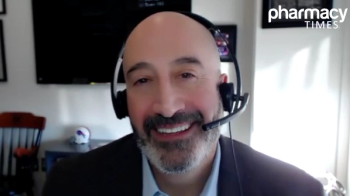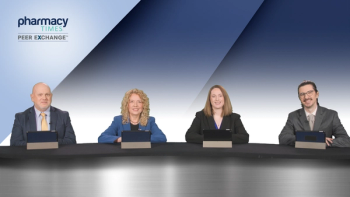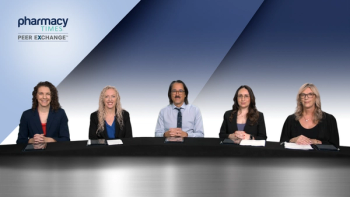
Embedded pharmacy experts in neurology strengthen multiple sclerosis care through education, therapy selection, lab monitoring, and collaborative practice agreements that close gaps.

Embedded pharmacy experts in neurology strengthen multiple sclerosis care through education, therapy selection, lab monitoring, and collaborative practice agreements that close gaps.

Explore how pharmacists can support pancreatic cancer patients on atebimetinib as Immuneering leaders and oncologists discuss tolerability, education, and survival-focused phase 3 trial goals.

Pharmacists play a vital role in countering GLP-1 misinformation.

Changes to the federal childhood vaccine schedule have created confusion and variation in practice, placing added responsibility on clinicians and pharmacists to educate patients and ensure evidence-based care.

During American Heart Month, Sarah Nelson, PharmD, highlights how pharmacists can leverage frequent patient interactions, risk assessment tools, and medication optimization strategies to reduce cardiovascular risk.

Experts discuss how atebimetinib and adjusted chemotherapy schedules enhance tolerability and treatment duration for pancreatic cancer patients.

Joseph Saseen, PharmD, explains how persistent cholesterol myths undermine care and why emerging oral proprotein convertase subtilisin/kexin type 9 (PCSK9) inhibitors could expand access to intensive LDL-C lowering.

In this episode, the panel reflects on how this program can help pharmacists strengthen their approach to tardive dyskinesia (TD) recognition and management.

Explore effective strategies for managing side effects in patients, emphasizing communication, monitoring, and education for optimal health outcomes.

In this episode, the panel discusses how pharmacists and the broader care team can support adherence and strengthen communication when patients start deutetrabenazine or valbenazine.

Explore the real-world challenges and strategies for patient adherence in treatment, emphasizing education and shared decision-making for better outcomes.

KTX-1001, a novel oral inhibitor of NSD2, demonstrates early clinical activity and manageable safety in heavily pretreated multiple myeloma.

Pharmacists adapt to new CDC guidelines, emphasizing pneumococcal vaccination for adults 50+, enhancing patient screening and vaccination efficiency.

Experts discuss groundbreaking data on pancreatic cancer treatment, revealing a 64% survival rate and its potential to transform patient care and outcomes.

Pharmacists play a critical role in improving access to and affordability of GLP-1 therapies.

New findings on myelofibrosis treatments reveal the impact of anemia on survival and the benefits of momelotinib for transfusion independence.

Pharmacists play a crucial role in managing myelofibrosis treatment, ensuring patient education, medication access, and monitoring for adverse effects.

Multidisciplinary coordination and streamlined workflows enabled rapid patient access to plozasiran after FDA approval at Stony Brook University Hospital.

Pharmacists play a vital role in managing multiple sclerosis treatments, enhancing patient care through clinical trials and personalized therapy options.

Discover the significance of PIRA in multiple sclerosis (MS) and how pharmacists enhance early detection and patient care in MS management.

Explore innovative strategies for identifying and managing multiple sclerosis through expert insights on biomarker-driven care and clinical practices.

Multidisciplinary coordination and streamlined workflows enabled rapid patient access to plozasiran after FDA approval at Stony Brook University Hospital.


Explore the latest FDA-approved treatments for hemophilia, including fitusiran and new anti-tissue factor inhibitors, enhancing patient care.

In this episode, the panel discusses key considerations for selecting and dosing VMAT2 inhibitors in tardive dyskinesia.

In this episode, the panel reviews the efficacy and safety data supporting deutetrabenazine and valbenazine for tardive dyskinesia.


Explore how pharmacists enhance access to care for multiple sclerosis patients, tackling barriers in diagnosis, treatment, and patient education.

GLP-1 receptor agonist effectiveness and tolerability can be significantly improved through targeted pharmacist counseling on alcohol reduction.

Pharmacists play a crucial role in educating patients with multiple sclerosis about treatment options, adverse effects, and navigating insurance challenges.